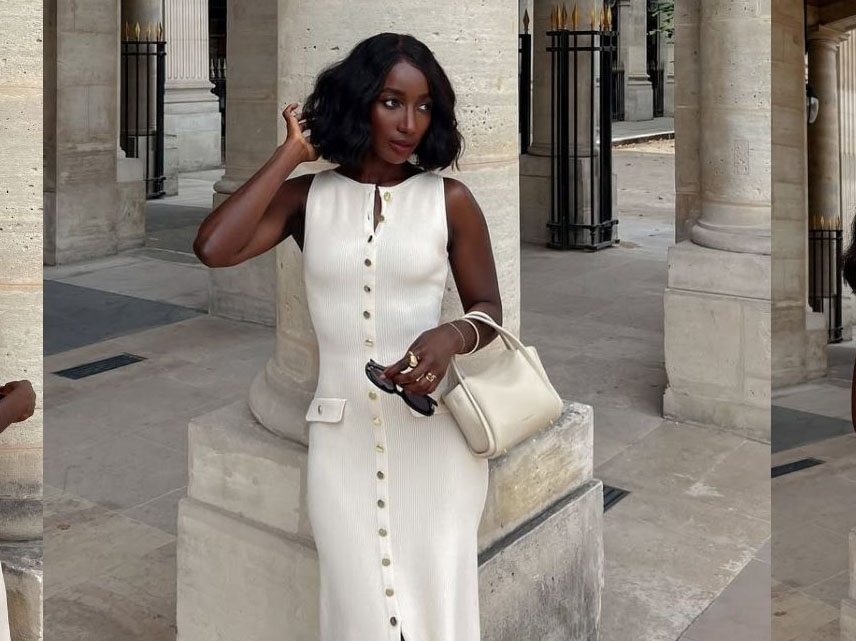The Art of Layering: Fashion Tips for Any Weather
Layering isn’t just about staying warm—it’s a style strategy that balances function and fashion. Whether you're braving the chill of winter, navigating unpredictable spring rains, or just want to add some dimension to your outfit, mastering the art of layering can elevate your look and prepare you for any weather

Recent Blogs
- Home Gym Hacks: Building an Effective Space on a Budget
- Beauty Sleep: How Rest Affects Your Skin and Body
- 10 Smart Ways to Add Comfort and Class to Hotel Stays
- Must-Have Accessories for Every Season in 2025
- Traveling Smart: Essential Safety Tips for Every Destination
- The Invisible Tech You Use Every Day Without Even Knowing
- Top Tech Tools Students Should Use To Study Smarter
March 25 26
Layering isn’t just about staying warm—it’s a style strategy that balances function and fashion. Whether you're braving the chill of winter, navigating unpredictable spring rains, or just want to add some dimension to your outfit, mastering the art of layering can elevate your look and prepare you for any weather.
In this blog, we’ll explore how to layer like a pro for every season, highlight essential pieces to keep in your wardrobe, and offer insider tips on fabric, fit, and fashion coordination.
Why Layering Matters
Layering is more than piling on clothes—it's a thoughtful approach to dressing that offers:
- Climate control: Adjust your outfit throughout the day as temperatures shift.
- Versatility: Combine different pieces to create multiple looks from the same wardrobe.
- Style depth: Layering adds dimension and personality to your outfit.
- Functionality: Be ready for rain, wind, or shine without compromising on style.
The Core Principles of Layering
Before diving into seasonal styling, it's essential to understand the basics:
1. Start with the Thinnest Layer
Your base layer should be lightweight and breathable—think cotton tees, fitted turtlenecks, or long-sleeved thermals. This layer sits closest to your skin and helps manage moisture and body heat.
2. Add a Mid-Layer for Warmth
The middle layer provides insulation. Sweaters, cardigans, denim shirts, or light jackets fall into this category. This is where you can experiment with textures like wool, fleece, or knits.
3. Top It Off with a Functional Outer Layer
This is your armor against the elements—coats, trench coats, rain jackets, or parkas. Choose based on the weather: waterproof for rain, wind-resistant for breezy days, or padded for cold conditions.
Seasonal Layering Tips
Let’s break down how to layer effectively across different seasons:
Spring: Light & Adaptive
Spring weather is famously fickle—sunny in the morning, chilly by evening. Your layering should reflect flexibility.
Key Pieces:
- Light trench coat or raincoat
- Cotton button-downs
- Breathable knit sweaters
- Lightweight scarves
Pro Tip: Layer a striped tee under a chambray shirt, then add a trench coat. Keep a scarf in your bag to warm up when needed.
Summer: Smart and Breathable
Layering in summer might sound counterintuitive, but it’s all about sun protection and indoor AC chills.
Key Pieces:
- Linen blazers
- Kimono wraps
- Sheer or mesh tops
- Light cotton or silk tanks
Pro Tip: Pair a breathable tank with an oversized, open linen shirt. Add a thin, sheer cardigan for breezy evenings. Choose light colors to reflect heat.
Autumn: Textured and Earthy
Fall is prime layering season. With crisp air and cozy vibes, it’s the perfect time to bring out the textures and warm tones.
Key Pieces:
- Denim or leather jackets
- Flannel shirts
- Turtlenecks
- Vests
Pro Tip: Try a base of a turtleneck under a corduroy shirt, finished with a leather jacket. Play with earth tones like rust, mustard, and olive green.
Winter: Warm and Functional
This is where layering becomes essential. The key is insulation without bulk.
Key Pieces:
- Thermal base layers
- Wool sweaters
- Down jackets
- Scarves, beanies, gloves
Pro Tip: Wear a moisture-wicking base, a chunky knit, and a long wool coat. Add a scarf and hat not only for warmth but as stylish finishing touches. Don’t forget thermal leggings under jeans if it’s freezing.
Fabric Matters: Choose Wisely
Different fabrics perform differently. Here's a quick guide:
- Cotton: Soft and breathable, great for base layers.
- Wool: Excellent insulator, ideal for mid-layers.
- Fleece: Lightweight and warm, perfect for sporty looks.
- Nylon/Polyester: Often used in windbreakers and raincoats for protection.
Pro Tip: Always avoid wearing thick cotton in winter as it absorbs moisture and doesn’t dry quickly.
Tips for Effortless Style While Layering
- Play with Lengths: Long coats over cropped tops, or tunics under shorter jackets—mix lengths for a visually appealing silhouette.
- Stick to a Color Palette: Choose 2-3 complementary colors to make mixing and matching easier.
- Don’t Overdo It: Layering should enhance your look, not bury you. If it feels bulky, remove one layer or opt for thinner fabrics.
- Accessorize Wisely: Hats, scarves, and gloves are both functional and stylish. Let them add pops of color or pattern.
- Balance Proportions: If your top half is bulky, go slim on the bottom—and vice versa.
Layering for Different Occasions
- Workwear: Try a crisp shirt under a lightweight knit with a tailored coat. Swap boots for loafers if indoors.
- Casual Weekend: Jeans, tee, hoodie, and a utility jacket. Effortless and weather-ready.
- Evening Out: Start with a sleek turtleneck, add a statement blazer and a bold scarf for flair.
Sustainable Layering: Less Waste, More Style
Layering also supports slow fashion—you can buy fewer items and rework them into countless combinations. Investing in timeless, quality pieces means you get more wear without chasing trends.
Conclusion: Make Layering Your Superpower
Layering is not just about dealing with weather—it's a creative tool. It lets you tell a story with your outfit, remain adaptable, and showcase personal style. Once you understand the fundamentals—fabric, fit, color coordination, and functionality—you'll find endless ways to mix, match, and stay comfortable in any climate.
Start simple, experiment often, and soon layering will become second nature in your fashion playbook.
Comment:
Your email address will not be published. Required fields are marked *
Our Top Picks
No products found.







